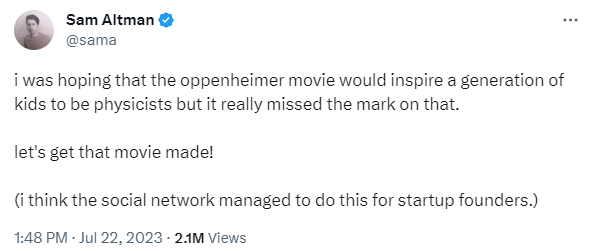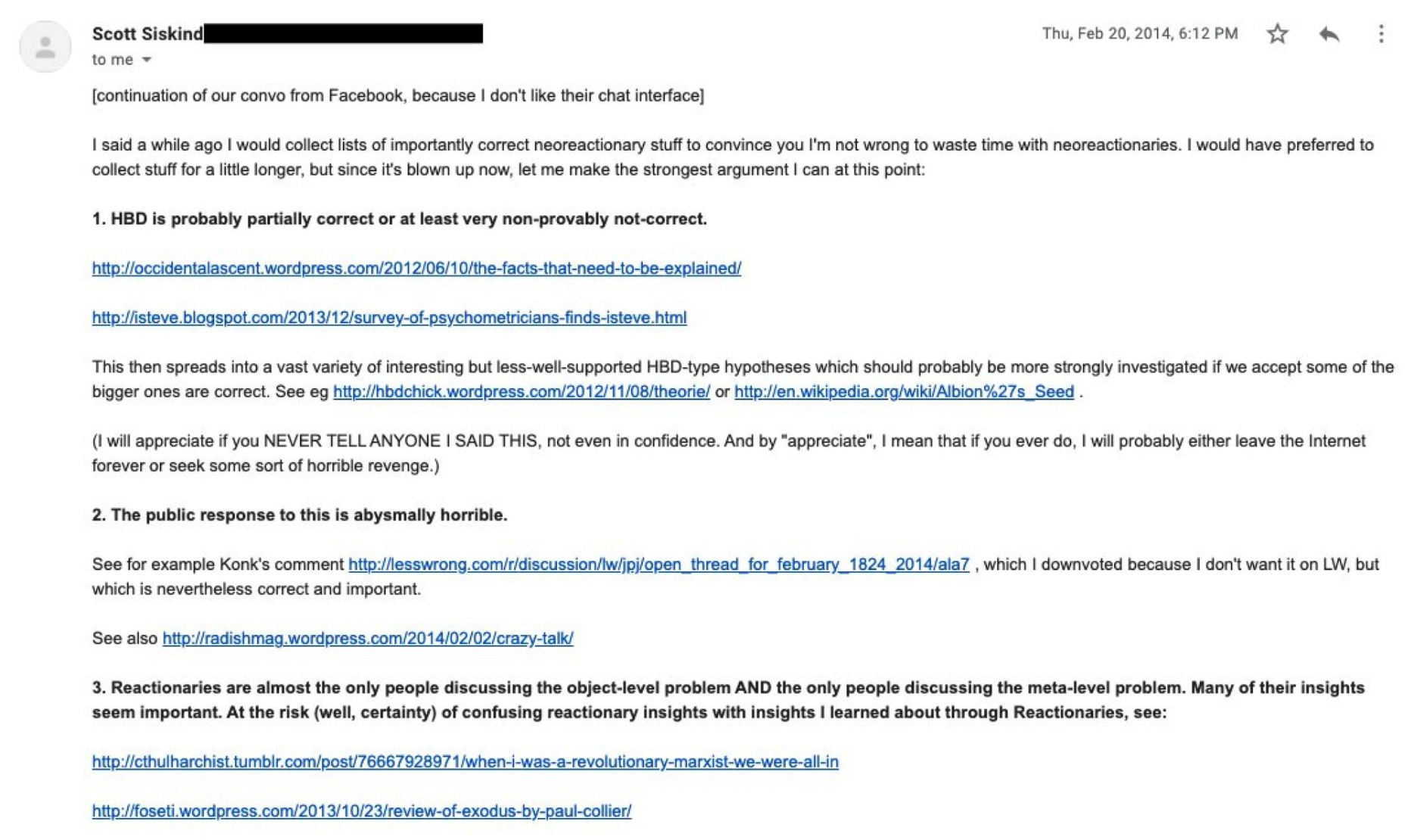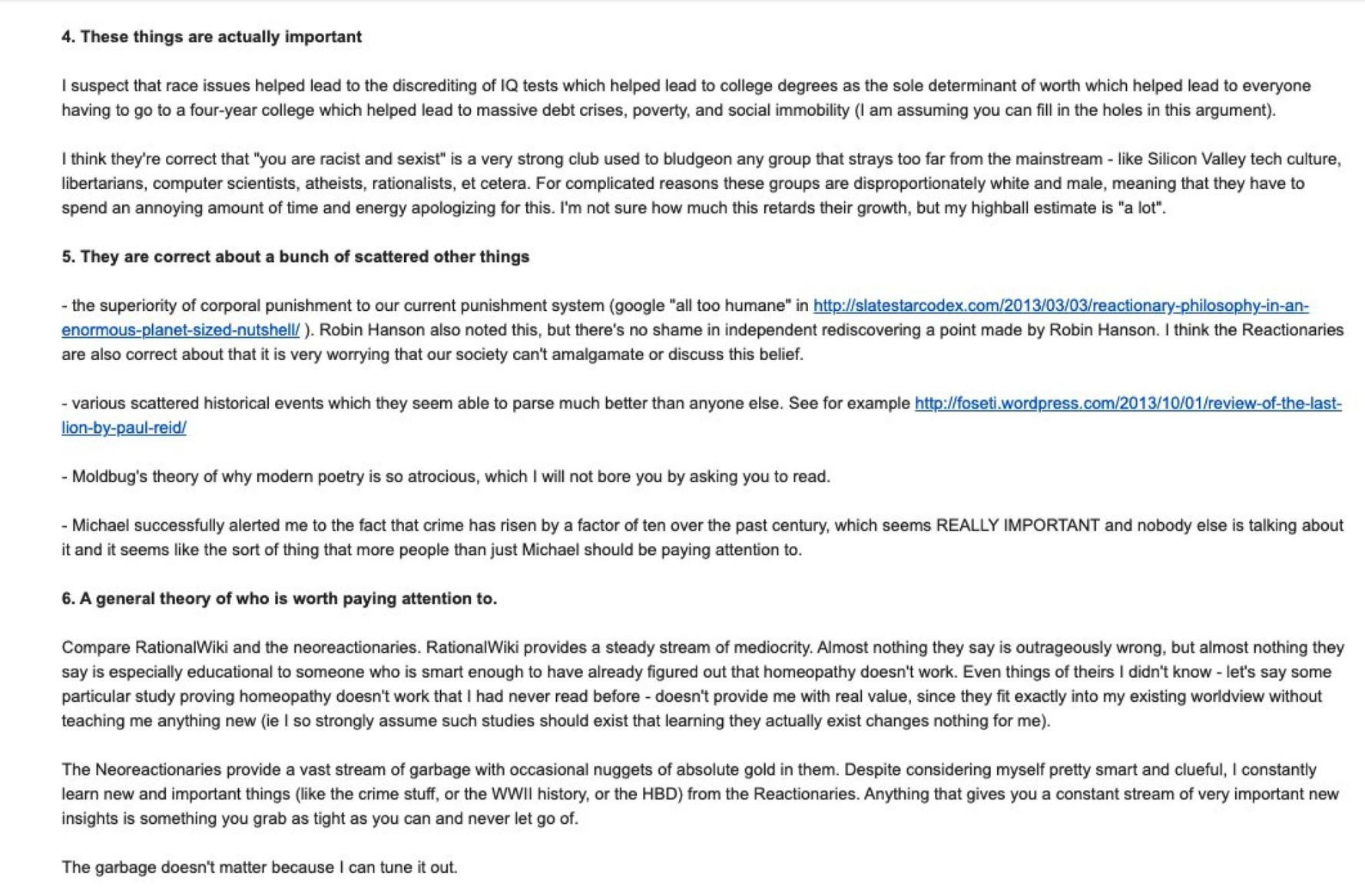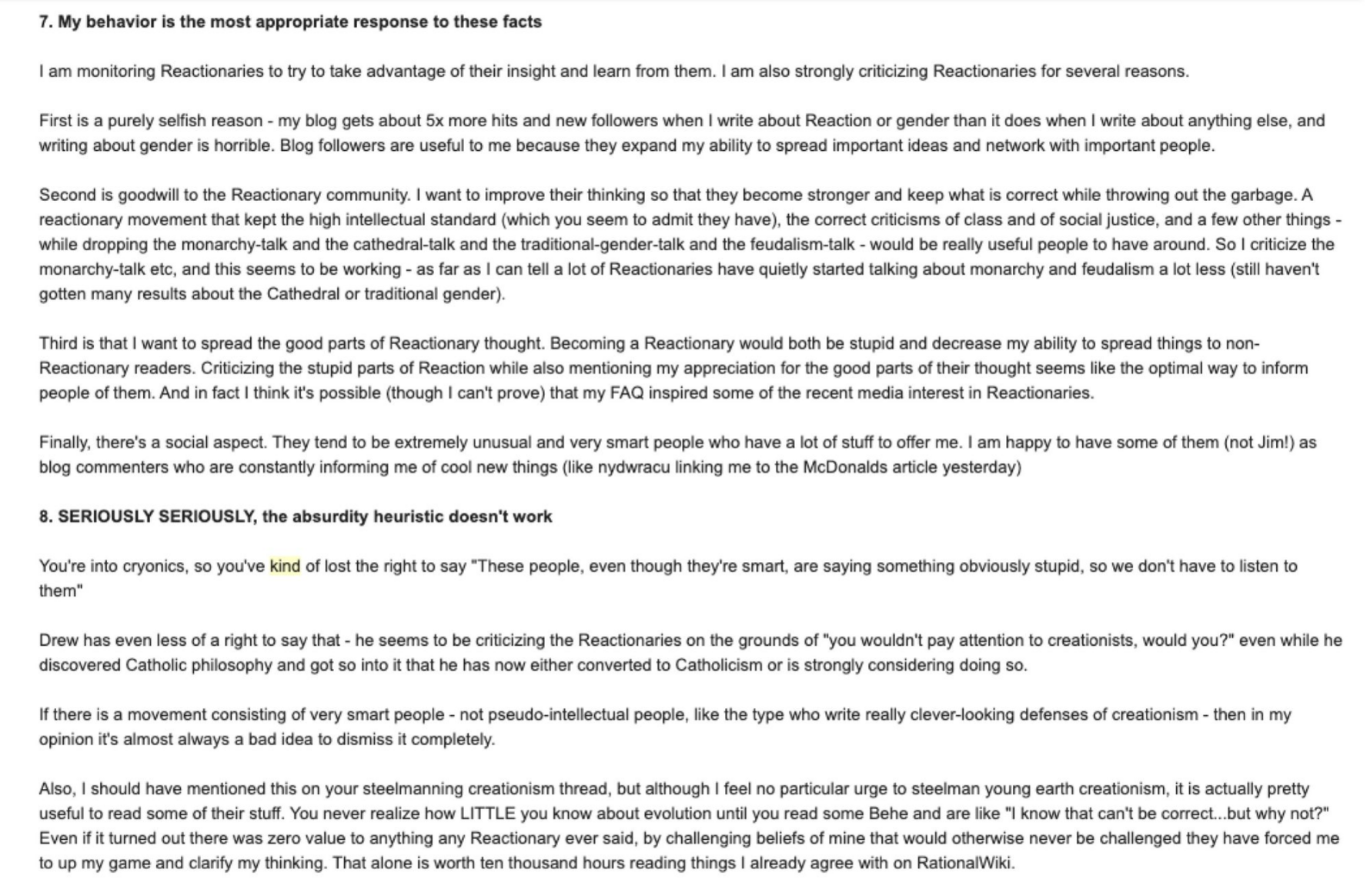A Brief Primer on Technofascism
Introduction
It has become increasingly obvious that some of the most prominent and monied
people and projects in the tech industry intend to implement many of the same
features and pursue the same goals that are described in Umberto Eco’s
Ur-Fascism(4); that is, these people are fascists and their
projects enable fascist goals. However, it has become equally obvious that those
fascist goals are being pursued using a set of methods and pathways that are
unique to the tech industry, and which appear to be uniquely crafted to force
both Silicon Valley corporations and the venture capital sphere to embrace
fascist values. The name that fits this particular strain of fascism the best is
technofascism (with thanks to @future_synthetic), frequently shortened for
convenience to techfash.
Some prime examples of technofascist methods in action exist in cryptocurrency projects, generative AI, large language models, and a particular early example of technofascism named Urbit. There are many more examples of technofascist methods, but these were picked because they clearly demonstrate what outwardly separates technofascism from ordinary hype and marketing.
The Unique Mechanisms of Technofascism
Disassociation with technological progress or success
Technofascist projects are almost always entirely unsuccessful at achieving their stated goals, and rarely involve any actual technological innovation. This is because the marketed goals of these projects are not their real, fascist aims.
Cryptocurrencies like Bitcoin are frequently presented as innovative, but all blockchain-based technologies are, in fact, inefficient distributed database based on Merkle trees, a very old technology which blockchains add little practical value to. In fact, blockchains are so impractical that they have provably failed to achieve any of the marketed goals undertaken by cryptocurrency corporations since the public release of Bitcoin(6).
Statement of world-changing goals, to be achieved without consent
Technofascist goals are never small-scale. Successful tech projects are usually narrowly focused in order to limit their scope(9), but technofascist projects invariably have global ambitions (with no real attempt to establish a roadmap of humbler goals), and equally invariably attempt to achieve those goals without the consent of anyone outside of the project, usually via coercion.
This type of coercion and consent violation is best demonstrated by example. In cryptocurrency, a line of thought that has been called the Bitcoin Citadel(8) has become common in several communities centered around Bitcoin, Ethereum, and other cryptocurrencies. Generally speaking, this is the idea that in a near-future post-collapse society, the early adopters of the cryptocurrency at hand will rule, while late and non-adopters will be enslaved. In keeping with technofascism’s disdain for the success of its marketed goals, this monstrous idea ignores the fact that cryptocurrencies would be useless in a post-collapse environment with a fractured or non-existent global computer network.
AI and TESCREAL groups demonstrate this same pattern by simultaneously positioning large language models as an existential threat on the verge of becoming a hostile godlike sentience, as well as the key to unlocking a brighter (see: more profitable) future for the faithful of the TESCREAL in-group. In this case, the consent violation is exacerbated by large language models and generative AI necessarily being trained on mass volumes of textual and artistic work taken without permission(1).
Urbit positions itself as the inevitable future of networked computing, but its admitted goal is to technologically implement a neofeudal structure where early adopters get significant control over the network and how it executes code(3, 12).
Creation and furtherance of a death cult
In the fascist ideology described by Eco, fascism is described as “a life lived for struggle” where everyone is indoctrinated to believe in a cult of heroism that is closely linked with a cult of death(4). This same indoctrination is common in what I will refer to as a death cult, where a technofascist project is simultaneously positioned as both a world-ending problem, and the solution to that same problem (which would not exist without the efforts of technofascists) for a select, enlightened few.
The death cult of technofascism is demonstrated with perfect clarity by the closely-related ideologies surrounding Large Language Models (LLMs), Artificial General Intelligence (AGI), and the bundle of ideas known as TESCREAL (Transhumanism, Extropianism, Singulartarianism, Cosmism, Rationalism, Effective Altruism, and Longtermism)(5).
We can derive examples of this death cult from the examples given in the previous section. In the concept of the Bitcoin Citadel, cryptocurrencies are idealized as both the cause of the collapse and as the in-group’s source of power after that collapse(6). The TESCREAL belief that Artificial General Intelligence (AGI) will end the world unless it is “aligned with humanity” by members of the death cult, who handle the AGI with the proper religious fervor(11).
While Urbit does not technologically structure itself as a death cult, its community and network is structured to be a highly effective incubator for other death cults(2, 7, 10).
Severance of our relationship with truth and scientific research
Destruction and redefinition of historical records
This can be viewed as a furtherance of technofascism’s goal of destroying our ability to perceive the truth, but it must be called out that technofascist projects have a particular interest in distorting our remembrance of history; to make history effectively mutable in order to cover for technofascism’s failings.
Parasitization of existing terminology
As part of the process of generating false consensus and covering for the many failings of technofascist projects, existing terminology is often taken and repurposed to suit the goals of the fascists.
One obvious example is the popular term crypto, which until relatively recently referred to cryptography, an extremely important branch of mathematics. Cryptocurrency communities have now adopted the term, and have deliberately used the resulting confusion to falsely imply that cryptocurrencies, like cryptography, are an important tool in software architecture.
Weaponization of open source and the commons
One of the distinctive traits that separates ordinary capitalist exploitation from technofascism is the subversion and weaponization of the efforts of the open source community and the development commons.
One notable weapon used by many technofascist projects to achieve absolute control while maintaining the illusion that the work being undertaken is an open source community effort is what I will call forking hostility. This is a concerted effort to make forking the project infeasible, and it takes two forms.
Its technological form is accomplished via network effects; good examples are large cryptocurrency projects like Bitcoin and Ethereum, which cannot practically be forked because any blockchain without majority consensus is highly vulnerable to attacks, and in any case is much less valuable than the larger chain. Urbit maintains technological forking hostility via its aforementioned implementation of neofeudal network resource allocation.
The second form of forking hostility is social; technofascist open source communities are notably for extremely aggressively telling dissenters to “just for it, it’s open source” while just as aggressively punishing anyone attempting a fork with threats, hacking attempts (such as the aforementioned blockchain attacks), ostracization, and other severe social repercussions. These responses are very distinctive in the uniformity of their response, which is rarely seen even among the most toxic of regular open source communities.
Implementation of racist, biased, and prejudiced systems
References
[1] Bender, Emily M. and Hanna, Alex, Ai Causes Real Harm. Let’s Focus on That over the End-of-Humanity Hype, Scientific American, 2023.
[2] Broderick, Ryan, Inside Remilia Corporation, the Anti-Woke Dao behind the Doomed Milady Maker Nft, Fast Company, 2022.
[3] Duesterberg, James, Among the Reality Entrepreneurs, The Point Magazine, 2022.
[4] Eco, Umberto, Ur-Fascism, The Anarchist Library, 1995.
[5] Gebru, Timnit and Torres, Emile, Satml 2023 - Timnit Gebru - Eugenics and the Promise of Utopia through Agi, 2023.
[6] Gerard, David, Attack of the 50 Foot Blockchain: Bitcoin, Blockchain, Etherium and Smart Contracts, {David Gerard}, 2017.
[7] Gottsegen, Will, Everything You Always Wanted to Know about Miladys but Were Afraid to Ask, 2022.
[8] Munster, Decrypt / Ben, The Bizarre Rise of the ’Bitcoin Citadel’, Decrypt, 2021.
[9] , Scope Creep, Wikipedia, 2023.
[10] , How to Start a Secret Society, 2022.
[11] Torres, Emile P., The Acronym behind Our Wildest Ai Dreams and Nightmares, Truthdig, 2023.
[12] Yarvin, Curtis, 3-Intro.Txt, GitHub, 2010.






the worst programmer is in captivity (banned)
the galaxy is at peace